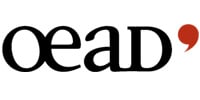Study in Austria: Application Process

On a scale from 1 to 10, how ready are you to apply to your Austrian dream university? We hope 10! The application process for Austrian universities is not complex. We are here to help you during your application. Just follow the following steps in order to get a step closer to your next academic journey.
1. Choose a Program
This is the initial and most important step. Make a plan of the person you aspire to be in the following years. Follow your dreams and passions but also take into account the technological and societal changes of the future when picking the profession you want to have in the future. After that, decide the level of studies. Is it a Bachelor’s, a Master’s or you want to focus on research with a PhD? Bachelor’s studies in Austria are most exclusively taught in German, so make sure you acquire the necessary language proficiency level for admission.
2. Check the Admission Requirements
Every university either public or private and every program, based on the discipline is unique and might have particular requirements for entry. Contact the program coordinators through an email from the official website if you have any questions about the admission’s criteria or if something is unclear before you start gathering all the documentation. Great preparatory work makes outstanding applications!
3. Prepare the Paperwork
Probably the least fun part of the process and the most stressful one, but if you are well prepared, there is nothing to worry about. The application process for Austrian universities requires the following documents:
- Proof of identification with an identity card or a passport and copies of them.
- Passport size photographs.
- High school diploma from your country of origin or equivalent.
- Transcript of records with the grades of your previous education/studies.
- Motivation letter written by you stating the reason you chose the program.
- A recommendation letter from your previous professors might be also asked.
- Proof of language proficiency in English through TOEFL or IELTS.
- Proof of German language proficiency depending on the program and level of studies you are applying for through ÖSD, TestDaF, Goethe Institut or Telc Deutsch.
- Proof of the application fee payment.
- Proof of your bank statements that are sufficient to support you through your studies.
4. Submit Your Application
The difficult part is gone, you have gathered all the necessary documentation. Now is time for your study application. The application process for Austrian universities is administered by the universities themselves, since there is no central application system. Therefore, you need to contact the universities you aim to apply for and they will provide you with more specific information.
All the applications are submitted online but there might be institutions that require you to send all the official documents through post. Bear in mind that this might need additional time so don’t delay to send everything on time. If you apply through the Austrian Embassy or Consulate of your country of origin, your application will be automatically forwarded to the educational institution you chose.
5. Apply for an Austrian Student Visa
Herzlichen Glückwunsch! You are admitted to an Austrian university. What comes next is for you to apply for your visa/residence permit if applicable, that will allow you to enjoy your studies with no obstacles. As an international student, start with the visa application as soon as possible. During that stage, you might be also asked to submit your first installment of tuition fees for your first semester, if applicable.
6. Arrive in Austria
After you have gained your admission and you have your visa ready, it is about time to start packing warm clothes for your studies in Austria! Start looking online for accommodation options, join online student forums to get a glimpse of how it is to be a student in Austria, start learning some basic German through a mobile app and finally buy an aeroplane ticket and arrive in the Alpine paradise of Europe. Good luck with your studies!
Study in Austria - Overview
Over 60,000 international students choose Austria as their study abroad destination every year. Click here to learn why.
Student Visas
Do you need a visa to enter Austria to study? Learn more about the student visa process, and what you need to enter the country, depending on your citizen status. You will also be required to bring certain documents with you to passport control at the airport, which we cover as well.
Education System
Want to learn about how the higher education system works in Austria? Austria is one of the popular destinations for a variety of students, given its diverse programs. Take a minute to find out more about the structure of the education system in Austria!
Housing & Living Costs
No matter where you study abroad, it’s important to create a budget in advance so that you’re prepared. Therefore, we’ve detailed average living and housing costs so that you can get a better idea of what you would be paying as a student in Austria.
Language & Culture
Austria is a country rich in history and culture. Find out more about what the country offers in terms of language, culture, and more!
Tuition Fees & Scholarships
Tuition fees for degree programs in Austria may vary. To cover the rest of the costs, there're some scholarship opportunities available.
Programs
Ready to look at education in Austria? Use our search engine to find and compare top programs in Austria today!
The content of this Study in Austria guide has been developed by OeAD - Austrian Agency for International Cooperation in Education and Research.

About OeAD
OeAD is Austria’s leading non-profit-making service organization in the field of international cooperation in education and research. The activities of the OeAD embrace general, academic, and vocational education with – historically grown – specific focus on academic mobility.

Keystone Team
Author
The Keystone Team is comprised of experienced educators and advisors dedicated to providing valuable resources and advice to students all over the world.